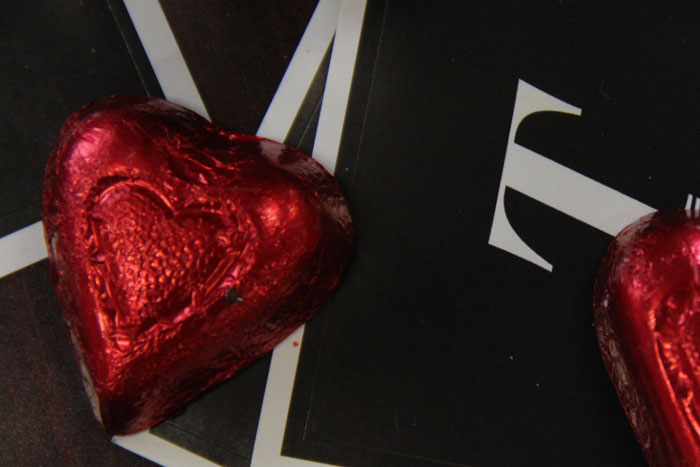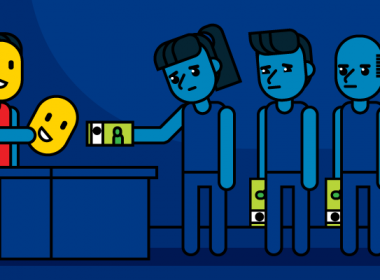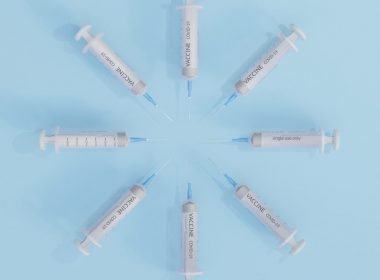Famously exchanged by lovers on Valentine's Day, tucked in an attractive heart-shaped box, chocolate is almost unanimously recognized as the sweet treat of love. Beyond being a sentimental gift to express affection, some believe that chocolate directly influences feelings of attachment and arousement, with the snack being historically considered as an effective aphrodisiac. While sinking one’s teeth into the guilty indulgence certainly elicits a joyful feeling, it is difficult to empirically judge chocolate’s supposed ability to incite romance.
Is chocolate’s reputation based on biochemical facts, or is it merely a romanticized myth? According to Ariel Fenster, a faculty lecturer in McGill’s Department of Chemistry and associate director of the Office for Science and Society, the discussion revolves around the chemical phenylethylamine (PEA), which is found in chocolate.
“Some studies suggest that there is a chemical in the brain that is associated with love [called phenylethylamine],” Fenster said. “And phenylethylamine is actually present in chocolate.”
Studies have shown that PEA is found in trace amounts in chocolate, at less than three milligrams per kilogram, as a result of the thermal processing and fermentation of cacao. PEA—which is also found in wine and various other foods—is an extremely complex organic compound. The chemical can act as a neurotransmitter, meaning it sends signals in the brain, resulting in the arousal of certain emotions and biological responses.
It is theorized that PEA creates a feeling of happiness and euphoria often associated with love by helping the brain release chemicals essential for producing feelings of pleasure, such as beta endorphin and dopamine. As a result, PEA itself has gained a reputation as a love drug.
“Supposedly, [PEA enhances] your feeling of attachment and your feeling of love,” Fenster said.
Despite all this, Fenster believes that the theory that chocolate produces feelings of love is ultimately lacks sufficient scientific backing. He claims that while chocolate contains PEA, there is no evidence that it will have a notable effect on the brain, given the distinct separations between the body’s digestive and neural systems.
“Like anything, [the theory] has a kernel of truth,” Fenster said. “The problem is that, even though phenylethylamine is supposedly present in brains of people in love, and even though it is present in chocolate, when you eat the chocolate, it cannot pass the blood-brain barrier, it cannot get into the brain.”
Significant concentrations of PEA from foods, such as chocolate, cannot reach the brain. The majority of PEA from food is metabolized by an enzyme in the body into phenylacetic acid. Since chocolate contains such a low dosage of PEA, there is little-to-no chance that it will actually have a significant effect on one’s mood or feelings.
Yet, there is hope for the hopeless romantics who are fans of this sugary treat. Besides PEA, there are numerous other compounds found in chocolate that could affect how one experiences love and the various activities and ideas related to it. For example, according to the U.S. Department of Agriculture, dark chocolate contains around 43 milligrams of caffeine per 100 grams. Caffeine is well-known to produce a feeling of excitement and alertness, which could potentially affect one’s romantic encounters. At the very least, a bar of chocolate could give people the energy needed to enjoy a night out with their loved one.
Perhaps the most convincing argument for the romance-inducing attributes of chocolate are due to the placebo effect, which has been proven to work for a vast majority of people. The placebo effect describes a beneficial consequence when patients feel a result of a mimic drug attributed to their belief in the treatment. This idea can essentially be applied to the effects of chocolate: As long as people truly believe that sharing a box of chocolate with their lover will help them fall deeper in love, this could very well be the case. Ultimately, love is a complex chemical and psychological process with many variables, so if people would like to believe in the magical romantic properties of chocolate, they should keep an open mind, and continue to enjoy the treat freely.








